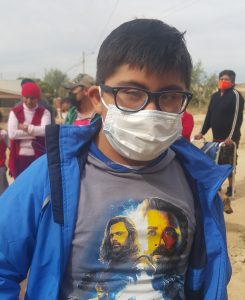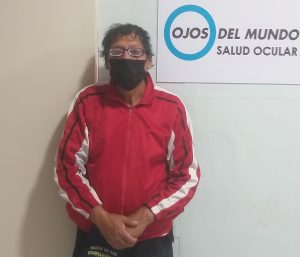In Bolivia, one of the most vulnerable groups is people with disabilities. Many of them also suffer from more than one disability, but this does not mean that they receive more help. And they often must overcome many barriers to receive eye care, such as mobility to care centers, lack of information about pathologies and cures, or the costs of treatments and services.
For this reason, Eyes of the world appreciates the support of entities such as the Bolivia’s National Bank, whose collaboration is mainly used to provide prescription lenses for people with disabilities. This is the case of little José or the special glasses that Mario needed.

José Rossel is 11 years old and was born with multiple disabilities. He attends a special education school in Tarija, where he learns to read and write, but his low vision further limits his learning. Her mother spent all her resources to cover medical expenses and could not bear the cost of glasses. Until the leader of the Los Angeles Development for the Disabled told her that a team from Eyes of the world was coming to the neighborhood to offer eye care. She took José, had his vision checked, had an ophthalmological measurement, and provided him with free refractive lenses. A pair of glasses that have opened up a whole world for José.

Mario Erquisia got his second pair of glasses 48 years after losing the first pair. When he was 13 years old, he was diagnosed with myopia, and had glasses made, but he lost them and, due to his economic situation, he could never get another pair. Now Mario is 61 years old, his wife has a disability, and he regrets being unable to help her as he would like because he has lost much of his vision. But he went to a mobile ophthalmological consultation, organized by Eyes of the world together with the Ministry of Health at the Integrated Sports Association, with check-ups aimed at disabled people and the people who care for them. They told him that the prescription he needed was too high because his eyesight significantly deteriorated, and the Foundation gave him new special glasses, free of charge, with which he finally sees again. “Now I can work and take better care of my wife and family”.